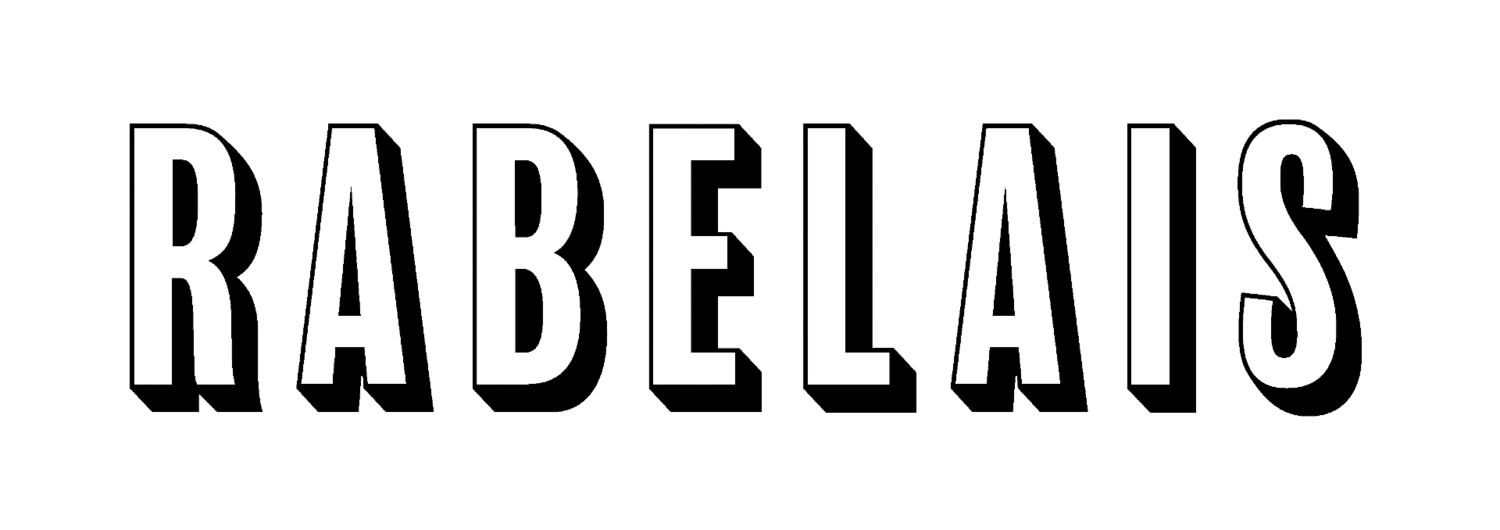Code of Conduct
Terms
a. Contributors
Any person who contributes to the operation of Rabelais, regardless of their title or working obligations. ‘Contributors’ is inclusive of the Chief Editors, the Rabelais Core Committee, Collaborators (written, artistic, or other), Creative Collective members, and anyone else involved with Rabelais.
b. Chief Editors
The Chief Editors are elected Office Bearers of the LTSU.
c. Rabelais Core Committee
The Rabelais Core Committee consist of the Chief Editors, the Chief Creative Director, the Content Director, and the Instagram Curator.
d. Collaborator
A Collaborator creates content (written, artistic and other) for Rabelais.
e. Creative Collective member
A member of Rabelais’ Creative Collective initiative.
1. Authority
This Code of Conduct has been written on behalf of Rabelais, as authorised by the La Trobe University Student Union Inc. (LTSU), the student representative body for La Trobe University (LTU).
2. Brief and Purpose
2.1 This document is intended to summarise the expectations held by Rabelais towards all contributors. Specifically, their behaviour and the standard of professionalism to be displayed when representing Rabelais.
2.2 As an organisation, we aim to foster a collaborative work environment, in which all contributors feel valued, respected, and safe. We encourage freedom of expression and open communication between the Rabelais Core Committee, Contributors, Reporters, the LTSU and the University community. To facilitate this, we require all contributors to agree to and adhere to the Code of Conduct.
3. Scope
3.1 This Code of Conduct applies to all Rabelais contributors.
4. Organizational Compliance
4.1 At all times, Rabelais Collaborators, Creative Collective members, and staff. are to follow the laws and regulations set by the Federal and State Governments of Australia, LTU, and the LTSU.
4.2 While undertaking Rabelais specific tasks, we expect all contributors to conduct themselves lawfully and ethically, as representatives of LTSU and Rabelais.
5. Respect
5.1 At all times, representatives of Rabelais should be respectful of their peers and the University community. Discriminatory behaviour and harassment are not tolerated.
5.2 An Acknowledgment of Country is to be given at the beginning of official Rabelais meetings.
6. Property
6.1 At all times, the property of the Rabelais Core Committee, Contributors, Reporters, LTU and the LTSU is to be respected and cared for.
6.2 By signing this document, you accept responsibility for your own property, always. Rabelais is not liable for any damage, theft, or loss of property.
7. Professionalism
7.1 As representatives of Rabelais, it is the responsibility of everyone to engage with students and faculty with respect and professionalism.
7.2 Ensure the maintenance of Rabelais’ reputation by acting with integrity, honesty, and respect.
7.3 Internal communications are required to be respectful and considerate.
8. Disciplinary Action
8.1 Serious breaches of this Code of Conduct may result in:
8.1.1 The removal of content and/or the rejection of future submitted content.
8.1.2 Expulsion from the Collaborator Collective or the Creative Collective
9. Benefits
9.1 To make every effort to platform the voices of our collaborators, all published work is credited unless otherwise requested.
10. Jurisdiction
10.1 The Chief Editors have final authority to publish or reject all works at their own discretion.
10.2 The Chief Editors have the authority to remove a Rabelais Collaborator or Creative Collective member from their position at the editor’s discretion
11. Conflict Resolution
11.1 In the event of a complaint raised regarding the conduct of the Rabelais Core Committee, it is to be referred to the Chief Editors of Rabelais.
11.2 In the event of a complaint raised regarding the conduct of the Chief Editors of Rabelais, it is to be referred to the LTSU President.
11.3 If a Contributor or Reporter has breached the Code of Conduct, you are compelled to raise a complaint with the Chief Editors.
12. Journalistic Integrity
12.1 Contributors and Rabelais Reporters will educate themselves about ethics and apply the following standards, inspired by the MEAA Journalistic Code of Ethics:
12.1.1 Report and interpret honestly, striving for accuracy, fairness, and disclosure of all essential facts. Do not suppress relevant available facts or give distorting emphasis.
12.1.2 Do your utmost to provide the right to reply for all parties involved in a story.
12.1.3 Do not place unnecessary emphasis on personal characteristics, including race, ethnicity, nationality, gender, age, sexual orientation, family relationships, religious belief, or physical or intellectual disability.
12.1.4 Aim to attribute information to its source. Respect a source’s wishes for anonymity where appropriate.
12.1.5 Do not allow personal interest or benefits to undermine your journalistic integrity.
12.1.6 Disclose conflicts of interest that affect or could be seen to affect your journalistic integrity. Do not improperly use a journalistic position for personal gain.
12.1.7 Do not allow advertising or other commercial considerations to undermine your journalistic integrity.
12.1.8 Do your utmost to ensure disclosure of any direct or indirect payment made for interviews, pictures, information, or stories.
12.1.9 Use fair, responsible, and honest means to obtain material. Identify yourself and your affiliation with Rabelais before obtaining any interview for publication.
12.1.10 Present pictures and sound which are true and accurate. Any manipulation likely to mislead should be disclosed.
12.1.11 Do not plagiarise.
12.1.12 Do your utmost to achieve fair correction of errors.
Last updated 23/02/2022
